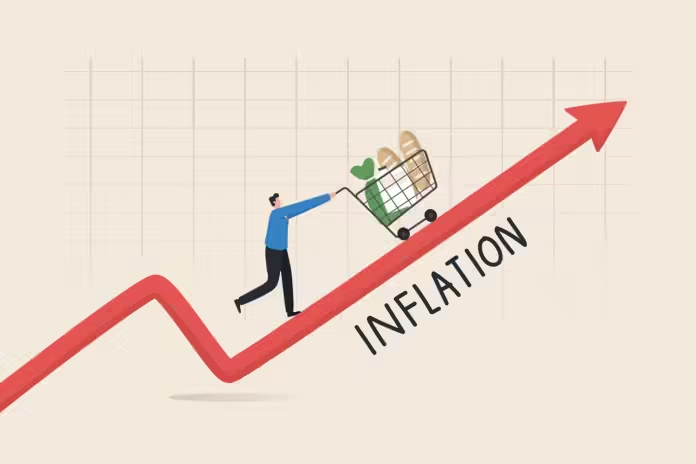ABUJA — Nigeria’s headline inflation surged to 32.70% in September 2024, up from 32.15% in August, driven by a steep increase in petrol prices. The National Bureau of Statistics (NBS) released the figures on Tuesday, highlighting the continuing pressure on consumers as fuel and transportation costs climb.
The September inflation rate showed a 0.55 percentage point rise compared to August, according to the NBS Consumer Price Index (CPI) report. On a year-on-year basis, inflation increased by 5.98 percentage points, up from 26.72% in September 2023.
“This means that in September 2024, the rate of increase in the average price level is higher than the rate of increase in the average price level in August 2024,” the report stated.
On a month-to-month basis, inflation rose by 2.52% in September, a slight increase from August’s 2.22%. Food inflation also climbed to 37.77% in September from 37.52% in August, reflecting the rising cost of essential goods.
The inflation spike follows the Nigerian National Petroleum Company Limited’s (NNPCL) fuel price hikes on September 3 and September 16, which saw petrol prices soar from N600 per liter to N897 per liter. This surge in fuel costs has had a direct impact on transportation fares and the prices of goods and services across the country.
The inflation uptick marks a reversal from the declines seen in July and August, placing further strain on consumers and businesses. In response, the Central Bank of Nigeria raised interest rates by 50 basis points to 27.25% during its September 27 Monetary Policy Meeting, signaling a continued effort to curb inflation.
Economic analysts warn that without further intervention, Nigeria’s inflation trajectory could worsen in the coming months as high fuel prices continue to affect key sectors of the economy.




